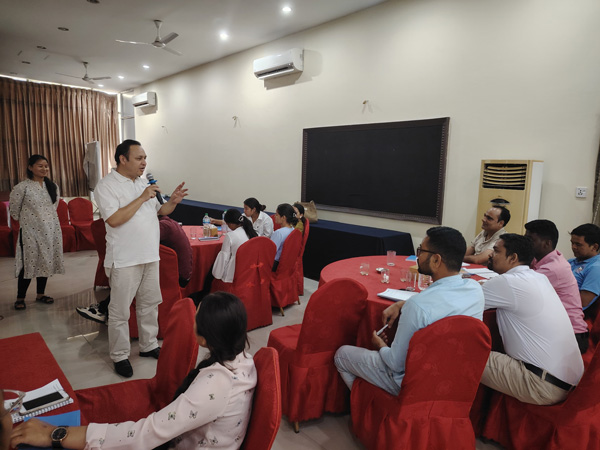News roundup 16 to 31 July 2025
Asia-Pacific animal health news roundup

Latest activities from FAO’s regional and country teams.
In this news roundup
AFRICAN SWINE FEVER | ||
| INDONESIA With support from the Ministry of Agriculture, Food and Rural Affairs (MAFRA) of the Republic of Korea, FAO completed the rehabilitation of the Manado Animal Health and Veterinary Public Health Laboratory on 30 July. Upgrades included major structural works, improved safety features and a refurbished drainage system to enhance diagnostic readiness. The modernized facility strengthens North Sulawesi’s capacity for early detection and rapid response to high-impact animal diseases, including African swine fever (ASF). Read more here. | |
ANTIMICROBIAL RESISTANCE | ||
| INDIA From 22 to 24 July, FAO India joined the Regional Training on the Use of the International FAO Antimicrobial Resistance Monitoring (InFARM) System and IT Platform in Bangkok, Thailand, organized by FAO RAP and FAO headquarters. The training built country capacity for standardized AMR surveillance data generation and submission in the food and agriculture sectors. India’s team shared national experiences and challenges in aligning diverse data sources with the InFARM model, ensuring accuracy and addressing operational issues. This participation represents a step toward harmonized AMR surveillance and data-driven policies to mitigate AMR threats across sectors. | |
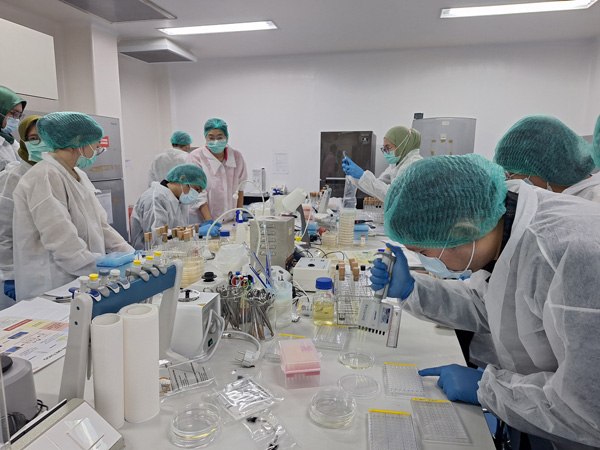 © FAO/Rallya Tellusa © FAO/Rallya Tellusa | INDONESIA FAO and the Government of Indonesia Ministry of Agriculture, with support from the European Union, conducted hands-on training on AMR laboratory testing for Avian Pathogenic Escherichia coli from 30 to 31 July. The training involved five private laboratories alongside national veterinary laboratories, marking an important step in expanding private sector engagement in AMR surveillance. Private laboratories contribute valuable diagnostic resources and access to isolates from internal farm operations. The FAO Reference Centre for AMR, Chulalongkorn University’s Faculty of Veterinary Science (CU-VET-AMR), and Kasetsart University provided technical support. | |
| Back to top | ||
CAPACITY DEVELOPMENT | ||
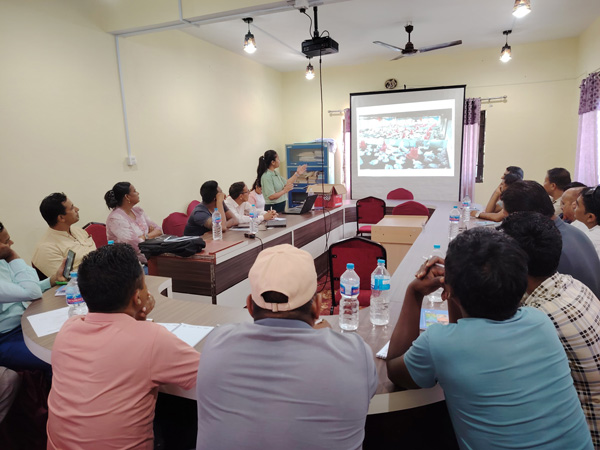 © FAO/Monalisa Khanal | NEPAL From 16 to 31 July, FAO, with funding support from the Pandemic Fund, trained 196 small- and medium-scale poultry farmers across eight districts on farm-level biosecurity and rational use of antimicrobials. Each participant received a biosecurity manual and kit to apply best practices. The training was conducted in collaboration with the Department of Livestock Services and the United States of America's Soybean Export Council. | |
| NEPAL Between 20 and 28 July, FAO trained 86 animal health technicians and 31 veterinary officers in three provinces on recognition and reporting of 26 notifiable livestock diseases listed by the Government of Nepal. Conducted with the Department of Livestock Services and provincial partners and funded by the Pandemic Fund, the training aimed to strengthen early detection and reporting capacities. | |
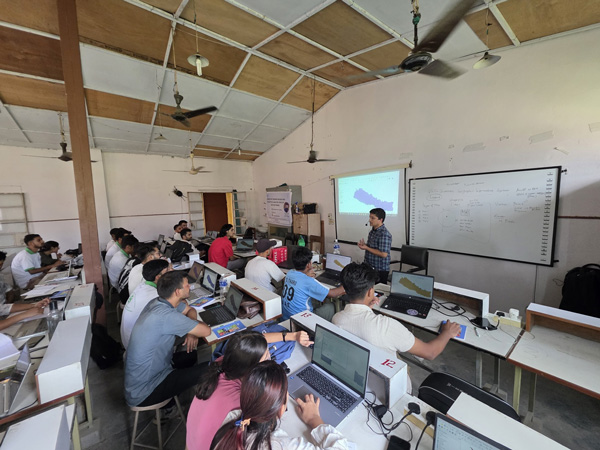 © FAO/Surendra Karki | NEPAL From 21 to 23 July, FAO, through funding from the Pandemic Fund, trained senior veterinary students from Tribhuvan University’s Institute of Agriculture and Animal Science in livestock data visualization using Quantum Geographic Information System (QGIS) and in data analysis using Excel and Epi Info. The training, organized with the Department of Livestock Services and the Institute, highlighted the application of GIS and statistical tools in veterinary science. | |
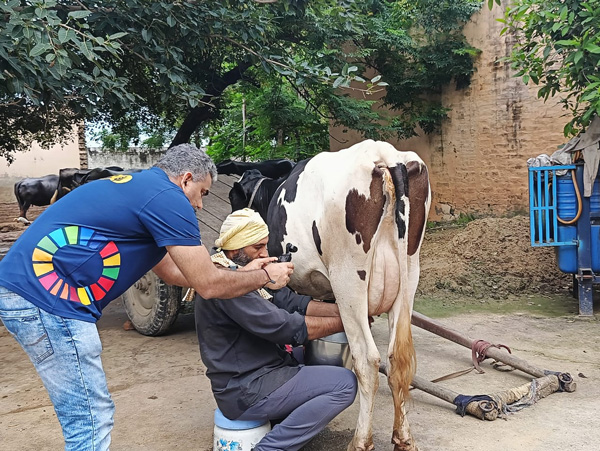 © FAO/Mohammad Hasib | INDIA FAO conducted a video mission to Meerut from 29 to 30 July, under the Clean Milk Project to re-shoot training videos promoting clean milk practices. The activity supports the Department of Animal Husbandry and Dairying (DAHD), Government of India, in developing easy-to-use protocols, and information, education and communication (IEC) materials to improve milk safety and hygiene across the value chain. Filming took place in villages under Harit Pradesh Milk Producer Company Limited and at a government dairy farm, highlighting improved milking, feed and fodder management, animal health and milk handling practices. The updated videos will be used to raise awareness and build capacity among smallholder dairy farmers, supporting compliance with national and international quality standards. | |
EPIDEMIOLOGY | ||
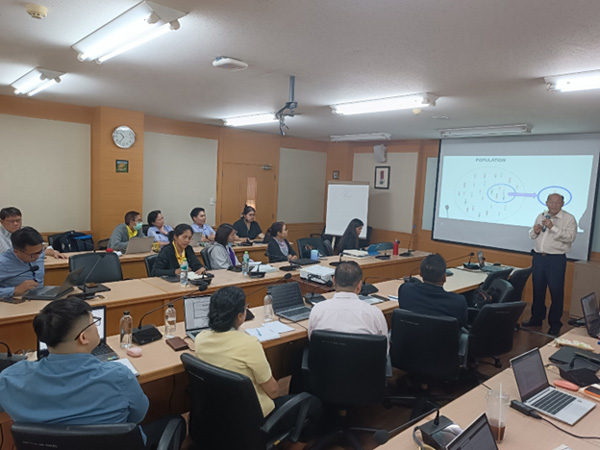 © FAO | ASIA AND THE PACIFIC Around 20 current and future mentors from the Philippines, Viet Nam, Thailand and Nepal participated in a four-day intensive training workshop on biostatistics and key epidemiological concepts from July 29 to August 1. The workshop was organized by the Regional Field Epidemiology Training Programme for Veterinarians (R-FETPV) with support from the United States of America’s Defense Threat Reduction Agency (DTRA). The aim of the workshop was to deepen participants' understanding of epidemiological study design and biostatistics, which are essential for effectively supporting trainees in field investigations, data analysis and reporting. Most of the participants were alumni of the R-FETPV, highlighting the programme's commitment to continuous engagement with its alumni and their vital role in mentoring the next generation of the epidemiological workforce. By enhancing the capabilities of mentors, both at the regional and country levels, the FETPVs are ensuring high standards in epidemiological practice. This ultimately promotes evidence-informed decision-making to improve the animal health system in the region. | |
| Back to top | ||
LABORATORY | ||
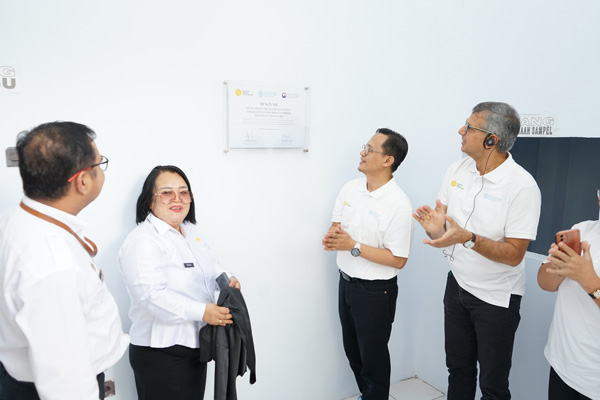 © FAO/Alia Dwirahmani | INDONESIA From 19 to 20 June, FAO and the Coordinating Ministry for Human Development and Cultural Affairs convened a coordination meeting to advance the national zoonoses and emerging infectious diseases (EIDs) information system (SIZE), with support from the Pandemic Fund. To accommodate the system migration, key milestones were outlined, including team formation, server provision, technical support for system migration by the Ministry of Communication and Digital Technology and pilot testing, with a soft launch targeted for August 2025. The upgraded SIZE system will support more efficient data integration and outbreak monitoring. | |
ONE HEALTH | ||
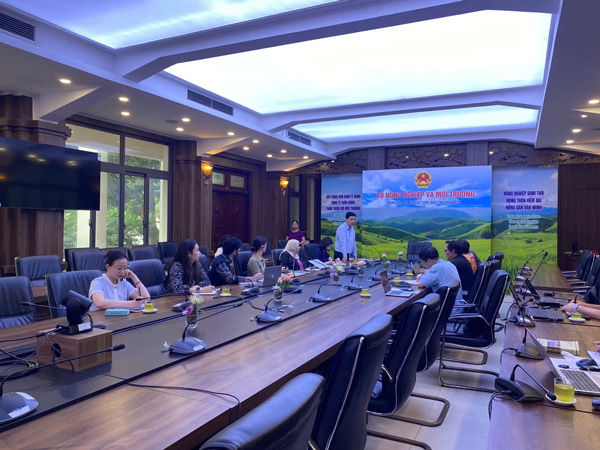 © FAO/Le Thi Dung | VIET NAM From 20 to 25 July, Viet Nam’s Ministry of Health, with WHO and partners, conducted its second Joint External Evaluation (JEE) to assess national capacities for health emergencies. FAO provided technical support to the Ministry of Agriculture and Environment on One Health-related areas, including surveillance, AMR, food safety, biosafety–biosecurity and workforce development. The JEE noted improvements since 2016 in AMR control, laboratory networks and immunization, while highlighting financing gaps as a key challenge. | |
© FAO/Vikram Vashist | INDIA On 22 July, FAO held a virtual meeting with Dr Bindu Nishal, the Vice President of Agri Innovation and One Health of the Sustainability Innovation Center (SINC), IKP Knowledge Park, to explore potential collaboration on One Health. Dr Nishal shared details of their One Health portfolio, including the International One Health Incubator and their self-paced online course, One Health for Professionals. The programme is designed to equip emerging leaders especially from the Global South with the knowledge, tools and practical skills needed to address complex health challenges at the intersection of human, animal and environmental health. SINC expressed interest in FAO becoming a knowledge dissemination and certifying partner for the course and discussed joint efforts such as Grand Challenges in FAO priority areas. The discussion marks the beginning of a potential collaboration aimed at amplifying shared goals in food security, zoonotic disease prevention and environmental sustainability through joint programmes, capacity building and knowledge-sharing initiatives. | |
PARTNERSHIPS | ||
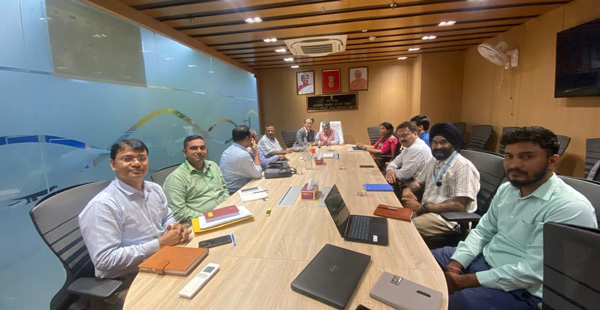 © FAO/Vikram Vashist | INDIA FAO participated in the fifth Technical Review Committee meeting of the Pandemic Fund project on 28 July, chaired by the Animal Husbandry Commissioner, Department of Animal Husbandry and Dairying (DAHD). The meeting brought together FAO, the Asian Development Bank and the World Bank to review budget expenditure and physical progress, and to align future plans. The Pandemic Fund project aims to strengthen India’s animal health systems through a One Health approach, focusing on enhanced surveillance, antimicrobial resistance (AMR) mitigation, laboratory capacity and workforce development. | |
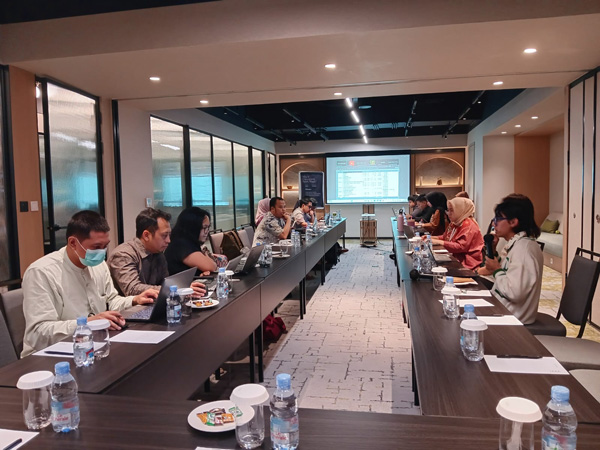 © Government of Indonesia | INDONESIA On 25 July, FAO participated in an inter-ministerial meeting hosted by the Coordinating Ministry for Community Empowerment to plan implementation of the CARE-I programme under the Pandemic Fund. Discussions focused on developing a legal framework for adaptive social protection to zoonotic and other non-natural disasters (particularly zoonotic events), and on strengthening family and community resilience. Pilot areas will be selected based on poverty levels, zoonotic risk, infrastructure readiness, and existing coordination mechanisms such as SIZE and TIKORDA. FAO emphasized an evidence-based approach integrating animal, human and environmental health within a comprehensive pandemic preparedness framework. | |
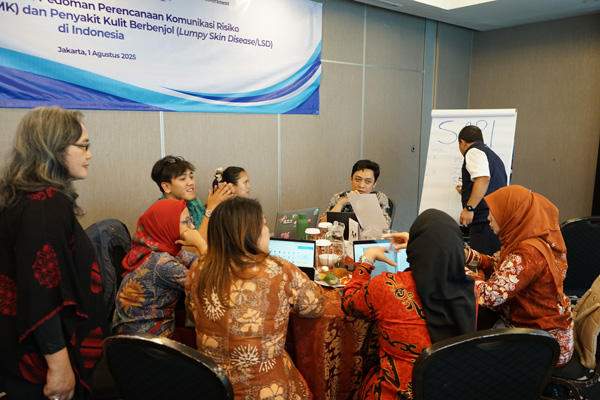 © FAO/Alia Dwirahmani | INDONESIA On 1 August, FAO and the Ministry of Agriculture, with support from the Australian Government, held a workshop to develop national guidelines for planning risk communication strategies on foot-and-mouth disease (FMD) and lumpy skin disease (LSD). The guidelines will support national and subnational animal health officers in delivering clear, timely and accurate information to reduce the risks and impacts of FMD and LSD outbreaks. | |
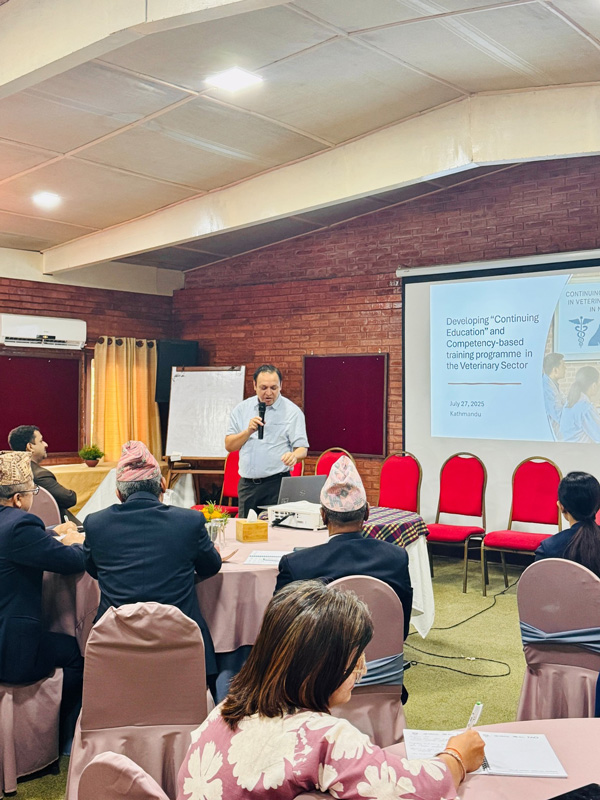 © FAO/Pratishta Joshi | NEPAL With support from the Pandemic Fund, FAO organized a workshop to initiate a discussion on the establishment of continuing education and competency-based training programmes in the national veterinary services of Nepal on 27 July in Lalitpur. Attended over 40 stakeholders, participants actively contributed their insights and recommendations toward developing a robust framework for continuing education and competency-based training in the veterinary sector of Nepal. The workshop was conducted in collaboration with the Department of Livestock Services. | |
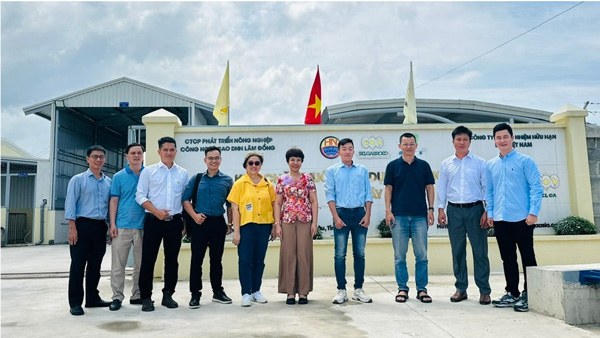 © FAO/Nhu Van Thu | VIET NAM With technical support from the FAO and the Ministry of Agriculture, Food and Rural Affairs (MAFRA) of the Republic of Korea, the Department of Animal Health and Production consulted with poultry value chain stakeholders in Tay Ninh and Dong Nai provinces from 27 to 30 July. This mission aims to develop guidelines for establishing compartments free from African swine fever (ASF) and Highly Pathogenic Avian Influenza (HPAI), as well as Newcastle Disease-free zones. These efforts will ensure compliance with veterinary hygiene, disease prevention and food safety standards. | |
- Learn more about our work on African swine fever here.
- Learn more about our work on antimicrobial resistance here.
- Learn more about our work on capacity development here.
- Learn more about our epidemiology here.
- Learn more about out work on laboratory here.
- Learn more about our work on One Health here.
- Learn more about our partnerships here.
Subscribe to our biweekly update here.

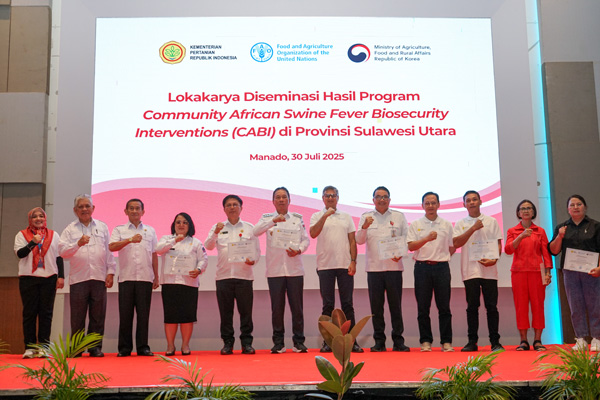 © FAO/Alia Dwilarahmani
© FAO/Alia Dwilarahmani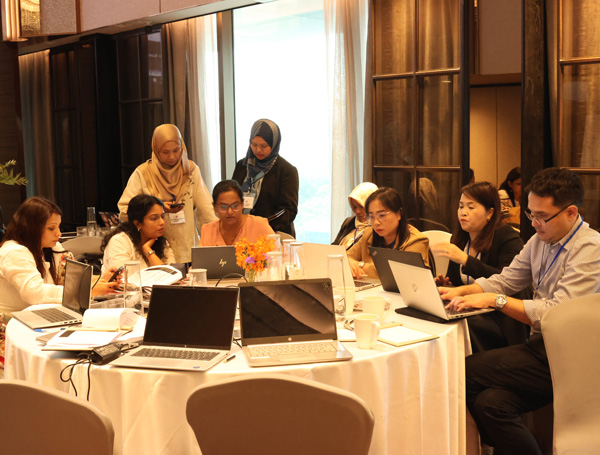 © FAO/Manju Soman
© FAO/Manju Soman